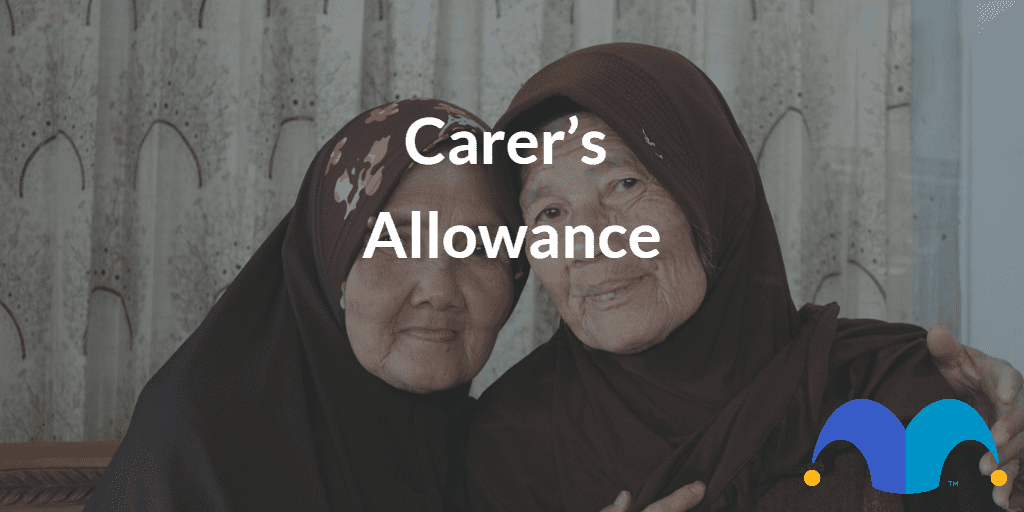Almost 14 million people in the UK are unpaid carers. This means that they care for an elderly, disabled or seriously ill relative or friend. When a caring role takes up enough time to affect earnings, carers may start to worry about their money, or at least their savings. Carer’s Allowance is a weekly payment to support people who spend a significant amount of their time caring for someone.
Carer’s Allowance is currently £67.60 per week. But who is eligible for it? And how can they claim it? Let’s take a closer look.
Are you eligible for Carer’s Allowance?
You don’t have to live with, or be related to, the person you care for, but you must be able to show that your caring role is authentic.
- Carer’s Allowance is only available for one carer, even if someone else is also caring for the same person.
- You are eligible if you care for someone for at least 35 hours per week.
- Even if you care for more than one person, you can only claim for one.
- The person you care for should be getting a benefit that proves they need assistance. Qualifying benefits include Attendance Allowance, Personal Independence Payment, Disability Living Allowance, Armed Forces Independence payment, or Child Disability Payment. In some instances, Carer’s Allowance can affect these benefits.
What kind of support is classed as caring?
Anything you do to help your relative or friend, that they can’t do themselves, counts as caring. Carers typically support with personal care, medication and meal preparation, but there are other kinds of help. Perhaps you do the shopping or assist with housework. Just being present and on hand, when necessary, is caring. For example, a carer may need to be there to keep an eye on someone with dementia.
If you are unsure about the type of support your relative requires, and how to pay for help, contact your local council and arrange a needs assessment. This should help you work out whether any free support is available in the form of social care. You can also get a Carer’s Assessment which can help you access support for you as a carer.
How do you make a claim?
It is fairly straightforward to claim Carer’s Allowance, but there are criteria that can affect your eligibility:
- You must have been living in the UK for two out of the last three years.
- You should be over 16 years old.
- Earnings must be less than £128 per week after tax, National Insurance and expenses.
- Full-time students are not eligible, but you can study part-time.
You can apply online via the gov.uk website, or call 0800 731 0297. Claims can be backdated for up to three months.
What kind of commitment is expected?
Detailed information about Carer’s Allowance (and anything related to caring) is available from Carers UK and Independent Age.
It is sensible to think very carefully about your commitment to caring before making a claim. Committing 35 hours per week, every week is almost a full-time job. Carers in receipt of this benefit are entitled to four weeks holiday every half year.
Before giving up work, or cutting down, research options for paid care.
Can I work and claim Carer’s Allowance?
It is possible to work part-time and receive Carer’s Allowance. In addition, the cap on earnings of £128 per week relates to income from paid work. Other forms of unearned income, like investments, are not included in the cap. The payment is not means-tested, but it is taxable. Self-employed workers will need to get advice from The Carer’s Allowance Unit with regard to calculating average earnings from paid work.
Through Carer’s Allowance, carers can keep up to date with Class 1 National Insurance contributions. If you are not eligible for the allowance, but National Insurance contributions are a concern, check your eligibility for Carer’s Credit.
Carer’s Allowance compensates people for any reduction in income from work as a result of the time spent caring. Therefore, pensioners receiving the State Pension may not get anything, unless they are receiving Pension Credit. Private pensions won’t affect a claim.
Will Carer’s Allowance affect other benefits?
Some means-tested benefits ‘overlap’ with Carer’s Allowance, and can affect eligibility. Nevertheless, it is still worth applying. This is because you will have an ‘underlying entitlement’ which could increase the amount you receive from other benefits.
Carer’s Allowance is not counted in the benefit cap, and carers can still get Universal Credit. Your caring role will be acknowledged and taken into consideration when making calculations.
